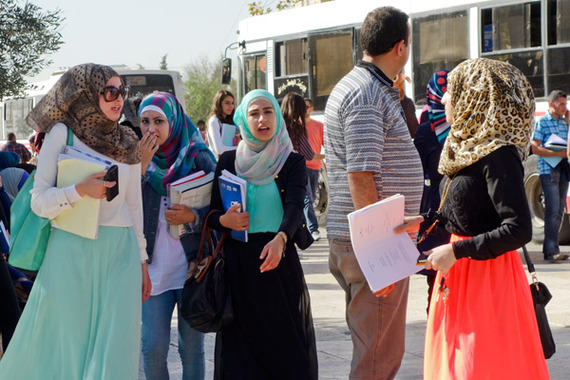US NEWS & WORLD REPORTS
By Fatima Zahra Mansouri

Morocco is showing how dramatic changes for the better can be made.
Watching the U.S. primary race unfold, offering the historic possibility of the first woman president, I have been reflecting on how dramatically women have benefitted from democratic progress in my own country, Morocco.
Of course, women in Morocco, like women in all societies of the world, are still fighting for equality; and believe me, the road is long. But Morocco recognized long ago that women represent half the potential of the country, and that protecting and expanding their rights is essential to the successful and peaceful evolution of our country. More than 10 years ago, we changed our family law, the Moudawana, to provide enhanced rights to women in marriage. It raised the legal age of marriage for women to 18; it abolished man’s right to renounce his wife simply by saying “I divorce you”; it gave women the right to initiate divorce; it provided them property rights in a divorce; and it gave them the right to engage in commerce and conduct business without spousal consent.
Now, there are laws that are the result of a cultural evolution, and there are laws that engender such an evolution. The Moudawana was definitely among the latter. It was a huge advance for Moroccan women, who, with this change, were able to become masters of their own destiny. There have been many other advances, as well, including expansion of schooling for girls in rural areas and increased access to higher education. And Morocco’s 2011 Constitutional reform solidified our country’s commitment to women’s rights by institutionalizing parity.
Women in Morocco drive. We build and run businesses. We study and teach at our country’s universities. We are social activists. We run for Parliament and other offices – and win, as I did when I was elected the first female mayor of Marrakesh. How is it that we are much better off than women in many other Muslims countries?
For several reasons. The tolerant Islam practiced for centuries in Morocco is one element, given added power because of the king’s status as Commander of the Faithful. Just as important is the fact that the movement for women’s rights in Morocco wasn’t just promoted by activists; the state, embodied by the monarchy, was a partner. In fact, the late Mohamed V, who was sultan and then king almost 100 years ago, set the example, and the tone, by stressing the importance of education and civic involvement for the princesses of his time.
None of this is to say that the fight for emancipation is over. A great deal still remains to be accomplished. We are still waiting and working for a strong law on violence against women. Furthermore, many of the parity laws mandated by the Constitution have yet to be enacted. And there is ongoing debate about abortion and women’s inheritance rights – both issues that will require legislation and adjudication.
As we reflect on the progress we have made, Moroccan women – and men – look forward to further achievements. As we do so, we must keep in mind King Mohamed VI’s question from long ago, when he asked how we can have a successful society if half our citizens are denied their full rights.







